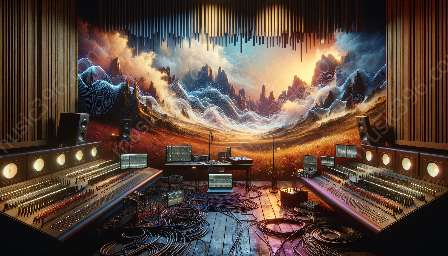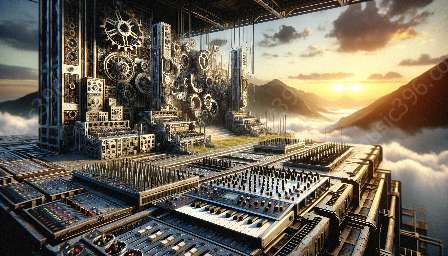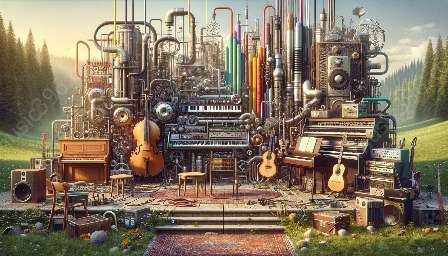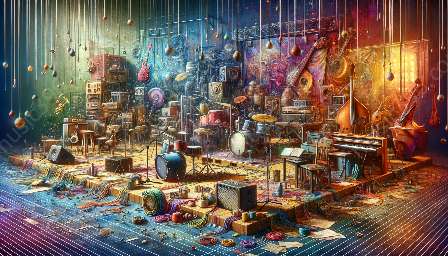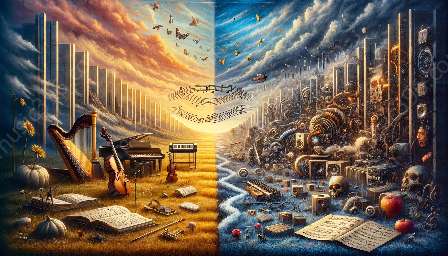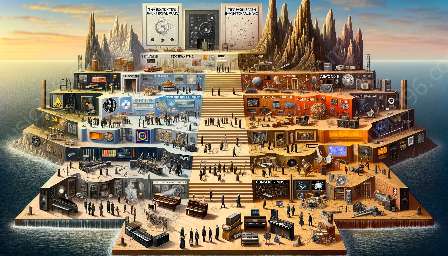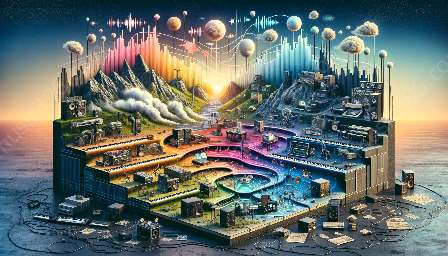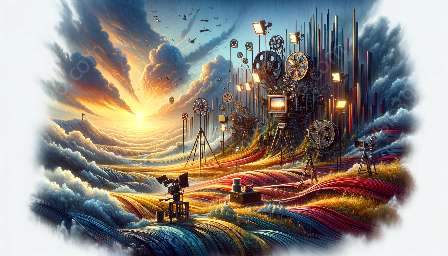Experimental music is a diverse and multifaceted genre that challenges traditional notions of sound, composition, and performance. As a result, it has sparked a variety of debates surrounding its purpose, significance, and boundaries. In this article, we will delve into the key debates surrounding experimental music and its connection to key movements, as well as its relation to experimental and industrial music.
Key Movements in Experimental Music
Before diving into the debates surrounding experimental music, it’s important to understand its historical context and connection to key movements. Experimental music has been influenced by various art and music movements throughout history, such as Dadaism, Surrealism, Fluxus, and the avant-garde. These movements have played a significant role in shaping the experimental music landscape and have contributed to its diverse and boundary-pushing nature.
What is Experimental Music?
Experimental music is a broad and inclusive term that encompasses a wide range of musical practices and approaches. It is characterized by its willingness to challenge established norms and conventions, often exploring unconventional sound sources, structures, and methods of composition. This diversity within the genre has sparked several key debates.
The Key Debates Surrounding Experimental Music
1. Definition and Boundaries
One of the central debates surrounding experimental music revolves around its definition and boundaries. Critics and scholars often grapple with the challenge of defining what constitutes experimental music and where its boundaries lie. Some argue that experimental music should be defined by its departure from traditional musical structures, while others assert that it should be seen as a mindset rather than a specific sonic outcome.
2. Artistic Freedom vs. Accessibility
Another key debate centers around the balance between artistic freedom and accessibility within experimental music. While some believe that experimental music should prioritize unfettered artistic expression, others argue for the importance of making the genre more accessible to a wider audience. This debate raises questions about the tension between artistic integrity and the desire for broader recognition and appreciation.
3. Innovation and Tradition
The tension between innovation and tradition is another hotly debated topic within the realm of experimental music. Some argue that experimental music should constantly push the boundaries of sonic exploration and innovation, while others advocate for a deeper engagement with musical traditions and histories. This debate reflects broader discussions within the music industry about the relationship between innovation and preservation.
4. Technology and Human Expression
Advancements in music technology have raised important debates about the role of technology in experimental music and its impact on human expression. Some argue that technology allows for new forms of sonic exploration and creativity, while others raise concerns about the potential loss of human touch and emotional depth in music as a result of over-reliance on technology.
Experimental Music and its Relation to Industrial Music
Experimental music shares a close relationship with industrial music, a genre characterized by its use of mechanized sounds, harsh textures, and industrial aesthetics. While the two genres are distinct, they often intersect and share common themes and approaches. Industrial music has its roots in the experimental music scene of the 1970s and has since evolved into a distinct genre with its own subgenres and movements.
Industrial Music as a Subgenre of Experimental Music
Some argue that industrial music is a subgenre of experimental music, emphasizing the experimental and avant-garde nature of its sonic palette and conceptual underpinnings. This perspective highlights the fluidity and interconnectedness of experimental and industrial music, challenging traditional genre boundaries and classifications.
Evolution and Divergence
While industrial music has its origins in the experimental music scene, it has also diverged into its own distinct trajectory. This divergence has led to debates about the relationship between industrial music and its experimental roots, as well as the influence of industrial music on the broader experimental music landscape.
Conclusion
The world of experimental music is rich with complexity, diversity, and ongoing debates. Its connection to key movements, its relation to industrial music, and its inherent boundary-pushing nature make it a dynamic and multifaceted genre that continues to shape and challenge the musical landscape. By exploring the key debates surrounding experimental music and its connections, we gain a deeper understanding of the ever-evolving and boundary-defying nature of this fascinating musical genre.











